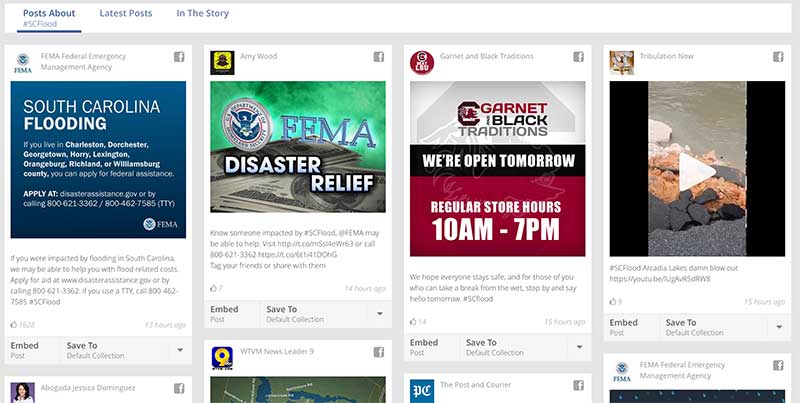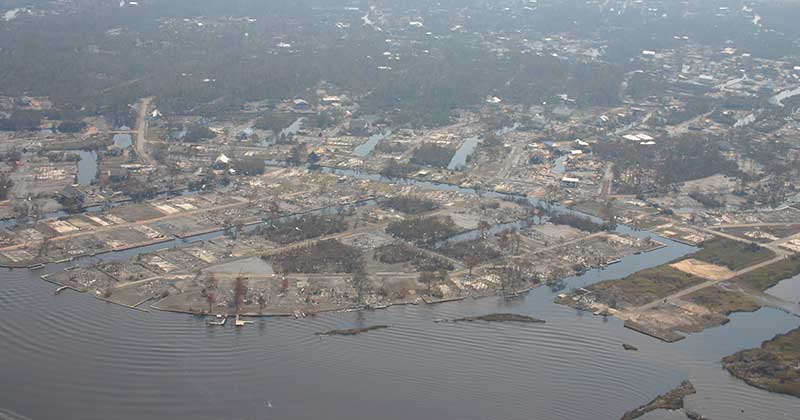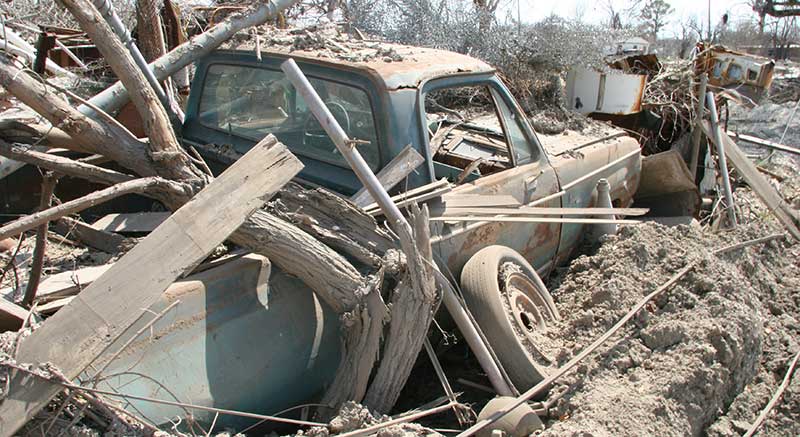Be patient when wanting to help #SCFlood – It will be a marathon!

Facebook Signal displaying posts related to #SCFlood – October 6, 2015
I have been sitting watching the television news feeds and social media outlets, and I all I can think of is Hurricane Katrina. I am not making this comparison based on response, type of storm, or the types of people impacted…I am basing my comparison from the images and similar flooding narratives.
I was one of the first to fly over Hurricane Katrina’s destruction and capture aerial imagery just a few days after the storm passed. What I witnessed from the helicopter reminds me of the flooding in Columbia. Lots of water, dams breaking, lots of homes under water, and lots of efforts to evacuate in real time as each of the dams broke.

Flooding in Plaquemines Parish below New Orleans – September 2005.
If you remember during Katrina, we watched CBS News and WWL-TV online as the flood waters rose and the levies broke. We watched in horror, we watched those stranded being rescued. I watched it with my own eyes, in person. I remember standing at the Intersection of I-10 and I-55 as a staging ground for the military choppers bringing those rescued to military trucks for safe travel out of the city. I remember it was like being in a war zone.

7th Ward in New Orleans – Seven Months After Hurricane Katrina – April 2006
The biggest comparison I have is a big complex, yet revealing to me. I worked for Belo Corporation who own WWL-TV, the only television to telecast live content during the storm because of Belo’s investment in raising their transmitter tower. We were sent by from Charlotte, NC by Belo Corporation to support WWL-TV and their efforts.
Because of the storm, we were forced to move the studio to Baton Rouge broadcasting the coverage from LSU’s Journalism School ninety miles away. Yes…ninety miles away in Baton Rouge, things seemed somewhat normal, the storm brushed by Baton Rouge. People were going out to eat, driving around, carrying on life where ninety miles down the road, there was complete destruction. We would have to drive daily into New Orleans to not only bring more equipment back from the WWL-TV’s studios downtown, but also drive with extra gas tanks on the top of the vehicle, escorted by the National Guard.
I feel the same way today here in Anderson, SC. My friends, colleagues, clients, and many others are suffering complete destruction from the floods just 120 miles away…here we sit in the upstate barely impacted by the storm. As most of us do immediately, we feel helpless and we want to act immediately. We want to organize, send clothes, water, and other items to help. From my experience, here are a few thoughts to consider:
- This will be a marathon. This is the type of disaster that will take months, if not years to get through.
- Organize together and watch local television outlets for ways to help. These media outlets are connected to the pulse of the emergency management, and they know first hand what is needed right now. WYFF-TV has a great link to read how you can help now.
- Those impacted in Columbia and surrounding areas feel just as helpless as we do. They are not only dealing with how to live in this disaster, how to help each other, where they might sleep, public health concerns, how to travel around, and the list goes on and on. So…we should not add to their chaos. Sending items immediately is great, but unless if this is going to help a specific need immediately…it could cause more chaos. Work with your local churches and hospitals to identify the need and leverage those relationships to interface with those in need.
- Hold on to those chainsaws and work boots. It is not safe to just jump into the car, drive to Columbia, and look for areas to start help clean-up. There are many areas that are still dangerous and manytimes local authorities will turn you away or divert your efforts until the areas are safe. Be patient, there will be a need to clean-up when it is safe.
- Get on Facebook and Twitter and follow the #SCFlood hashtag. This is a great resource to watch the conversations. FEMA and many other news outlets, emergency management, authorities are using this hashtag to share updated information.
When I was working at Katrina, many of the local authorities, emergency management, and churches did a wonderful job of organizing and asking for volunteers. Put on your listening caps and begin listening for when people say they need help. This will take a long time to clean-up, but if organized properly…we can shine as South Carolinians.
